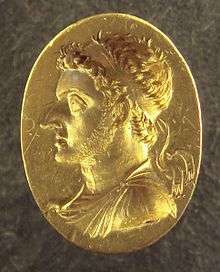Ptolemy VI Philometor
| Ptolemy VI | |||||||||||||||||||||||||||||||||||||||||||||||||||||||||||||||||||||||||||||||||||||||||||||||||||||||||||||||||||||||||||||||||||||||||||||||||||||||||||||||||||||||||||||||||||||||||||||||||||||||||||||||||||||||||
|---|---|---|---|---|---|---|---|---|---|---|---|---|---|---|---|---|---|---|---|---|---|---|---|---|---|---|---|---|---|---|---|---|---|---|---|---|---|---|---|---|---|---|---|---|---|---|---|---|---|---|---|---|---|---|---|---|---|---|---|---|---|---|---|---|---|---|---|---|---|---|---|---|---|---|---|---|---|---|---|---|---|---|---|---|---|---|---|---|---|---|---|---|---|---|---|---|---|---|---|---|---|---|---|---|---|---|---|---|---|---|---|---|---|---|---|---|---|---|---|---|---|---|---|---|---|---|---|---|---|---|---|---|---|---|---|---|---|---|---|---|---|---|---|---|---|---|---|---|---|---|---|---|---|---|---|---|---|---|---|---|---|---|---|---|---|---|---|---|---|---|---|---|---|---|---|---|---|---|---|---|---|---|---|---|---|---|---|---|---|---|---|---|---|---|---|---|---|---|---|---|---|---|---|---|---|---|---|---|---|---|---|---|---|---|---|---|---|
 Ptolemy VI | |||||||||||||||||||||||||||||||||||||||||||||||||||||||||||||||||||||||||||||||||||||||||||||||||||||||||||||||||||||||||||||||||||||||||||||||||||||||||||||||||||||||||||||||||||||||||||||||||||||||||||||||||||||||||
| King of Egypt | |||||||||||||||||||||||||||||||||||||||||||||||||||||||||||||||||||||||||||||||||||||||||||||||||||||||||||||||||||||||||||||||||||||||||||||||||||||||||||||||||||||||||||||||||||||||||||||||||||||||||||||||||||||||||
| Predecessor | Ptolemy V | ||||||||||||||||||||||||||||||||||||||||||||||||||||||||||||||||||||||||||||||||||||||||||||||||||||||||||||||||||||||||||||||||||||||||||||||||||||||||||||||||||||||||||||||||||||||||||||||||||||||||||||||||||||||||
| Successor | Ptolemy VIII | ||||||||||||||||||||||||||||||||||||||||||||||||||||||||||||||||||||||||||||||||||||||||||||||||||||||||||||||||||||||||||||||||||||||||||||||||||||||||||||||||||||||||||||||||||||||||||||||||||||||||||||||||||||||||
| |||||||||||||||||||||||||||||||||||||||||||||||||||||||||||||||||||||||||||||||||||||||||||||||||||||||||||||||||||||||||||||||||||||||||||||||||||||||||||||||||||||||||||||||||||||||||||||||||||||||||||||||||||||||||
| Ptolemy VI Philometor | |
|---|---|
 Coin of Ptolemy VI | |
| Born | c. 185 |
| Died | 145 BC (aged 39–40) |
| Spouse | Cleopatra II of Egypt |
| Issue |
With Cleopatra II: Ptolemy Eupator Ptolemy Cleopatra Thea Berenice Cleopatra III of Egypt |
| Dynasty | Ptolemaic |
| Father | Ptolemy V Epiphanes |
| Mother | Cleopatra I of Egypt |
Ptolemy VI Philometor[note 1] (Greek: Πτολεμαῖος Φιλομήτωρ, Ptolemaĩos Philomḗtōr "Ptolemy Beloved of his Mother"); c. 186–145 BC) was a king of Egypt from the Ptolemaic period. He reigned from 180 to 164 BC and from 163 to 145 BC.[1]
Early life and first reign
Ptolemy succeeded in 180 BC at the age of about 6, upon the death of his father Ptolemy V. He ruled jointly with his mother Cleopatra I until her death in 176 BC, which is what his epithet 'Philometor' implies: "he who loves his mother" (φίλος (beloved,friend) + μήτηρ (mother)).
In 173 BC Ptolemy VI married his sister Cleopatra II as was customary for Pharaohs, for the Ptolemaic Greek kings had adopted many customs of the Pharaohs.[2] He had at least four children with her: Ptolemy Eupator, Ptolemy Neos, Cleopatra Thea and Cleopatra III, and possibly Berenice.[1]
The outbreak of the Sixth Syrian War in 170 BC saw Ptolemy VIII and Cleopatra II becoming co-rulers. The Seleucid king Antiochus IV Epiphanes, who vied with Ptolemy VI over the control of Syria, invaded Egypt in 169, leading to unrest and subsequent calls for Ptolemy VIII and Cleopatra II to ascend to the throne. A period of reconciliation followed, but the second invasion of Egypt in 168 created further unrest.[3] Ptolemy VI was driven out by his brother Ptolemy VIII in 164 BC.
Return to the throne
Ptolemy VI went to Rome to seek support. The Romans partitioned the Ptolemaic land, granting Ptolemy VI Cyprus and Egypt, and Ptolemy VIII Cyrenaica.[4]
Around 150 BC he recognized Alexander Balas as the Seleucid king by marrying his daughter Cleopatra Thea to him in a ceremony at Ptolemais Akko.[5] In 145 BC, however, while Alexander was putting down a rebellion in Cilicia, Ptolemy VI invaded Syria, securing safe passage through Judaea from Alexander's vassal Jonathan Maccabee, and capturing the city of Seleucia. He remarried his daughter to Alexander's rival Demetrius II and went to Antioch, where he crowned himself King of Asia. Alexander was defeated by Ptolemy when he returned from Cilicia with his army. Alexander then fled to Arabia, where he was killed. For the first time since the death of Alexander the Great, Egypt and Syria were united. However, Ptolemy died three days later, in unknown circumstances.[6]
Ancestry
| Ancestors of Ptolemy VI Philometor | ||||||||||||||||||||||||||||||||||||||||||||||||||||||||||||||||||||||||||||||||||||||||||||||||||||||||||||||||||||||||||||||||||||||||||||||||||||||||||||||||||||||||||||||||||||||||||||||||||||||||||||||||||||||||||||||||||||||||||||||||||||||||||||||||||||||||||||||||||||||||||||||||||||||||||||||||||||||||||||||||||||||||||||||||||||||||||||||||||||||||||||||||||||||||||||||||||||||||||||||||||||||||||||||||||||||||||||||||||||||||||||||||||||||||||||||||||||||||||||||||||||||||||||||||||||||||||||||||||||||||||||||||||||||||||||||||||||||||||||||||||||||||||||||||||||||||||||||||
|---|---|---|---|---|---|---|---|---|---|---|---|---|---|---|---|---|---|---|---|---|---|---|---|---|---|---|---|---|---|---|---|---|---|---|---|---|---|---|---|---|---|---|---|---|---|---|---|---|---|---|---|---|---|---|---|---|---|---|---|---|---|---|---|---|---|---|---|---|---|---|---|---|---|---|---|---|---|---|---|---|---|---|---|---|---|---|---|---|---|---|---|---|---|---|---|---|---|---|---|---|---|---|---|---|---|---|---|---|---|---|---|---|---|---|---|---|---|---|---|---|---|---|---|---|---|---|---|---|---|---|---|---|---|---|---|---|---|---|---|---|---|---|---|---|---|---|---|---|---|---|---|---|---|---|---|---|---|---|---|---|---|---|---|---|---|---|---|---|---|---|---|---|---|---|---|---|---|---|---|---|---|---|---|---|---|---|---|---|---|---|---|---|---|---|---|---|---|---|---|---|---|---|---|---|---|---|---|---|---|---|---|---|---|---|---|---|---|---|---|---|---|---|---|---|---|---|---|---|---|---|---|---|---|---|---|---|---|---|---|---|---|---|---|---|---|---|---|---|---|---|---|---|---|---|---|---|---|---|---|---|---|---|---|---|---|---|---|---|---|---|---|---|---|---|---|---|---|---|---|---|---|---|---|---|---|---|---|---|---|---|---|---|---|---|---|---|---|---|---|---|---|---|---|---|---|---|---|---|---|---|---|---|---|---|---|---|---|---|---|---|---|---|---|---|---|---|---|---|---|---|---|---|---|---|---|---|---|---|---|---|---|---|---|---|---|---|---|---|---|---|---|---|---|---|---|---|---|---|---|---|---|---|---|---|---|---|---|---|---|---|---|---|---|---|---|---|---|---|---|---|---|---|---|---|---|---|---|---|---|---|---|---|---|---|---|---|---|---|---|---|---|---|---|---|---|---|---|---|---|---|---|---|---|---|---|---|---|---|---|---|---|---|---|---|---|---|---|---|---|---|---|---|---|---|---|---|---|---|---|---|---|---|---|---|---|---|---|---|---|---|---|---|---|---|---|---|---|---|---|---|---|---|---|---|---|---|---|---|---|---|---|---|---|---|---|---|---|---|---|---|---|---|---|---|---|---|---|---|---|---|---|---|---|---|---|---|---|---|---|---|---|---|---|---|---|---|---|---|---|---|---|---|---|---|---|---|---|---|---|---|---|---|---|---|---|---|---|---|---|---|---|---|---|---|---|---|---|---|---|---|---|---|---|---|---|---|---|---|---|---|---|---|---|---|---|---|---|---|---|---|---|---|---|---|---|---|---|---|---|---|---|---|---|---|---|---|---|---|---|---|---|---|---|---|---|---|---|---|---|---|---|---|
| ||||||||||||||||||||||||||||||||||||||||||||||||||||||||||||||||||||||||||||||||||||||||||||||||||||||||||||||||||||||||||||||||||||||||||||||||||||||||||||||||||||||||||||||||||||||||||||||||||||||||||||||||||||||||||||||||||||||||||||||||||||||||||||||||||||||||||||||||||||||||||||||||||||||||||||||||||||||||||||||||||||||||||||||||||||||||||||||||||||||||||||||||||||||||||||||||||||||||||||||||||||||||||||||||||||||||||||||||||||||||||||||||||||||||||||||||||||||||||||||||||||||||||||||||||||||||||||||||||||||||||||||||||||||||||||||||||||||||||||||||||||||||||||||||||||||||||||||||
Notes
- ↑ Numbering the Ptolemies is a modern convention. Older sources may give a number one higher or lower. The most reliable way of determining which Ptolemy is being referred to in any given case is by epithet (e.g. "Philopator").
References
- 1 2 Chris Bennett. "Ptolemy VI". Tyndale House. Retrieved May 22, 2013.
- ↑ "Pharaohs of Ancient Egypt". Ancient Egypt Online. Retrieved May 22, 2013.
- ↑ Lendering, Jona. "Ptolemy VI Philometor". Livius. Retrieved 18 January 2017.
- ↑ "Ptolemy VI Philometor: Macedonian King of Egypt". Encyclopædia Britannica.
- ↑ I Maccabees 10.48-58
- ↑ I Maccabees 11.1-11.19
External links
- Ptolemy Philometor at LacusCurtius — (Chapter IX of E. R. Bevan's House of Ptolemy, 1923)
- Ptolemy VI — (Egyptian Royal Genealogy)
- Ptolemy VI Philometor entry in historical sourcebook by Mahlon H. Smith
Ptolemy VI Philometor Born: c. 185 BC Died: 145 BC | ||
| Preceded by Ptolemy V Epiphanes Cleopatra I |
Ptolemaic King of Egypt with Cleopatra I Cleopatra II Ptolemy VIII Physcon 181–164 BC |
Succeeded by Ptolemy VIII Physcon |
| Preceded by Ptolemy VIII Physcon |
Ptolemaic King of Egypt with Cleopatra II Ptolemy VIII Physcon Ptolemy VII Neos Philopator 163–145 BC |
Succeeded by Cleopatra II Ptolemy VII Neos Philopator |

_-_2009.jpg)